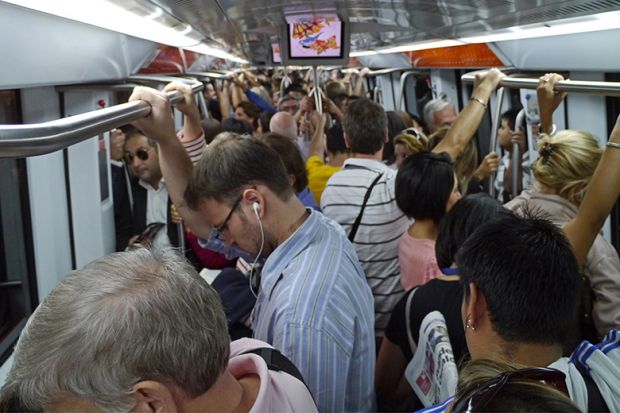Academics must do more to adapt courses for the growing number of “commuter students” who travel long distances to campus each day, new research suggests.
Undergraduates who commute think that much more could be done to alter course content, assessment or extracurricular activities to accommodate their needs, explained Deborah Anderson, associate professor in strategy, marketing and innovation at Kingston University’s business school, who has investigated the problems faced at her institution.
Those interviewed at Kingston, where 55 per cent of first-year students lived near the campus, cited travelling to 9am classes in rush-hour traffic, long gaps between classes and committing to group work as key problems they faced, said Dr Anderson.
Other difficulties identified by commuter students included committing to extracurricular activities and socialising with friends in the evenings, Dr Anderson said.
“We have definitely got things like timetabling to address, but we are also somewhat constrained because, as a faculty, we have finite space and time to schedule all the required lectures, seminars and tutorials,” Dr Anderson told Times Higher Education. This meant that some classes were inevitably rostered fairly early in the day, she said.
Working with fellow students in groups – something that those with social and family commitments said they found difficult – was also essential experience for business students, she added.
“We expect students to do group work, but it can be difficult if they cannot find a couple of hours in an afternoon to do this,” said Dr Anderson, who nonetheless believed courses could be adapted to give such group presentations less weight in acknowledgement of the problems faced by some students.
The study by Dr Anderson and her Kingston colleagues Barry Avery and Jane Southall, which was presented at the British Educational Research Association’s annual conference in Leeds, also highlighted many myths about the motivations of commuter students, she explained.
Far from being a “second choice” to living in student halls, many commuter students had made “a quite positive choice” to commute to university each day, said Dr Anderson.
“There is a massive number of students who want to live at home and lots may have family commitments, such as taking a younger sibling to school, that they can’t or don’t want to give up,” she said.
Academics often struggled to understand the mindset of commuter students, as most had moved away from home and immersed themselves in scholarly life while at university, Dr Anderson added.
“When I went to university it took over my life, but the conception of university among commuter students is quite different,” she explained.
“They might see their own social life as quite separate from the university, but they are still making very positive choices about going to university,” she said.
Register to continue
Why register?
- Registration is free and only takes a moment
- Once registered, you can read 3 articles a month
- Sign up for our newsletter
Subscribe
Or subscribe for unlimited access to:
- Unlimited access to news, views, insights & reviews
- Digital editions
- Digital access to THE’s university and college rankings analysis
Already registered or a current subscriber?









